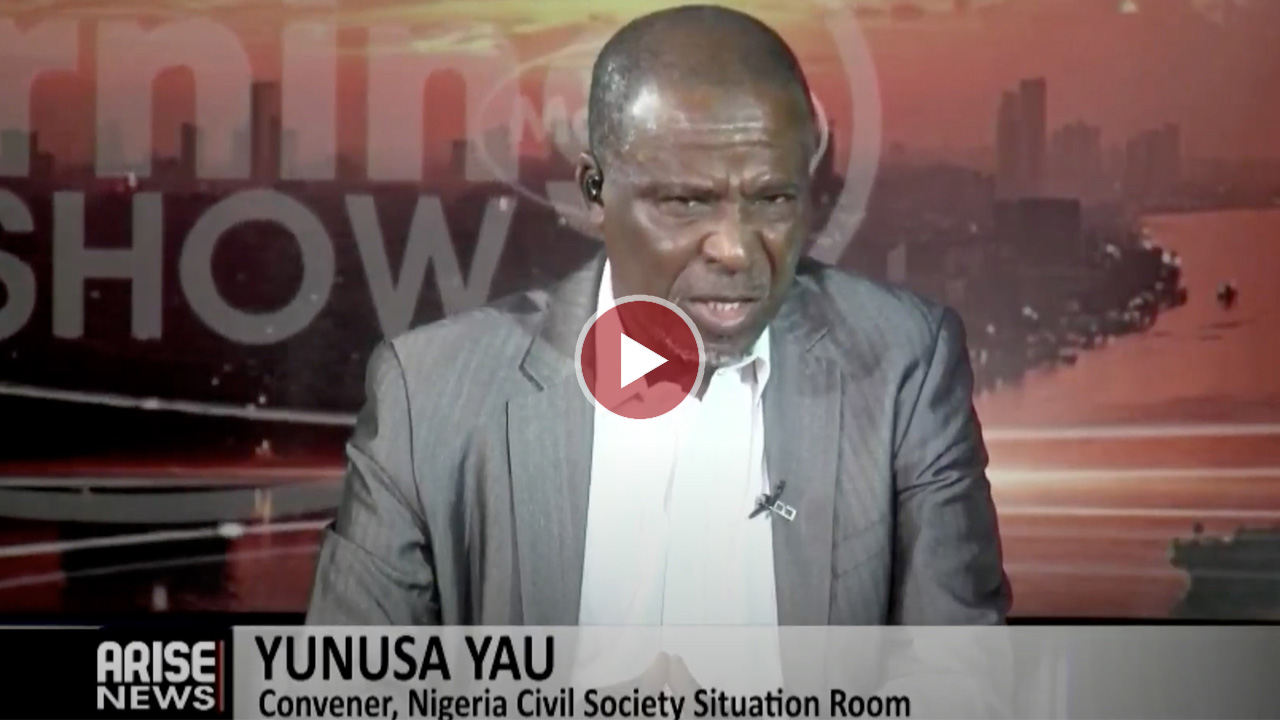
As the Senate prepares to screen the nominee for Chairman of the Independent National Electoral Commission (INEC), Convener, Nigeria Civil Society Situation Room, Yunusa Yau has called for a transparent, citizen-involved process that will ensure only credible and non-partisan individuals are confirmed to lead the electoral body.
Speaking In an interview with ARISE News on Friday, Yau asserted that Nigerians must demand both a credible appointment process and urgent electoral reforms if the 2027 general elections are to be free, fair and widely accepted. “Getting the electoral act to be amended is one leg of the conduct of the election. “Getting credible people, non-partisans, to be at the head of this is also another leg. Without both of these meeting what we call the threshold conditions, we will not be able to see the conduct of a free, fair, and credible election.”
“We need somebody that has the courage to stand and say the truth against power. We need somebody who is transparent and not a member of a political party in the night and in the day a member of a national electoral commission.”
Yau emphasised that competence, courage and integrity not academic titles should be the deciding factors in choosing Nigeria’s next electoral umpire. “It doesn’t matter whether he’s a professor or a medical doctor or a bureaucrat. What is needed is that we need somebody with competence that has been demonstrated in past engagement.”
He stressed that the Senate must not repeat past mistakes where confirmations were rushed without adequate public scrutiny, warning that the credibility of INEC’s leadership will shape the integrity of future elections. “That is why we want an open process of screening of candidates who are nominated for the position of national commissioners and, of course, the chairman of INEC. We want people who know them, people who have engaged with them, people who have interacted with them, people who know them to be able to say, I know this person, I can vouch for this or that. I know he belongs to a political association or political party, you know, so that we don’t go into a process in which somebody who had been partisan, who had been a member of a political party is appointed to do these things. You know, that would compromise the process.”
Yau also urged the National Assembly to open up the confirmation process to public petitions and inputs, allowing citizens and civil society organisations to share credible information about nominees’ backgrounds and possible political affiliations. “The president needs to be transparent with Nigerians. Can you publish the credentials, the experience, the engagement of this nominee so that we all know him? Yes, we know he has been an academic. Yes, we know he has done one thing or the other. But we want a formal communication to Nigerians this is the person that are nominated, and not just a name.”
“I think that our democracy has passed that stage. And I think we need people to be screened publicly and transparently. And the Senate ought to answer to Nigerians on what basis are you confirming a particular candidate? And not just simply because you’re a person.”
He described the need for legislative amendments to Nigeria’s Electoral Act as critical insisting that the law must explicitly mandate INEC to electronically transmit election results to prevent ambiguity and legal loopholes exploited in the 2023 polls. “We need a very emphatic statement that mandates INEC compulsorily to transmit results electronically. That’s one important advance we must make, so that next time we are not going back to argue whether this is a guideline or a law.”
Acknowledging that sitting presidents are often reluctant to sign electoral reforms that could limit their influence, Yau insisted that sustained citizen pressure can make a difference. “When Nigerians are galvanised and fully mobilised, they can force the hands of these elected representatives to legislate on what they want. If they refuse, Nigerians can still push the National Assembly to override a presidential veto.”
He concluded by urging the Senate to exercise its oversight responsibility without fear or favour, insisting that public trust in Nigeria’s democracy depends on the integrity of those appointed to lead INEC. “We do not want a rubber-stamp Senate. We want a Senate that will do its due diligence in the area of scrutiny and oversight,” Yau said.
Erizia Rubyjeana


